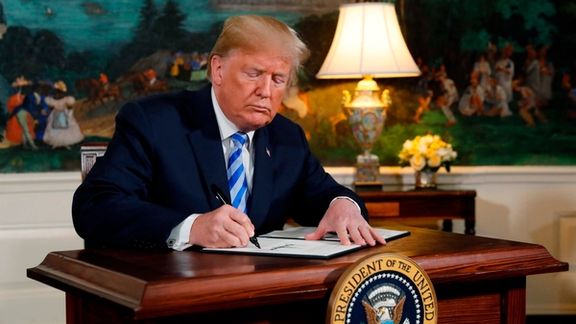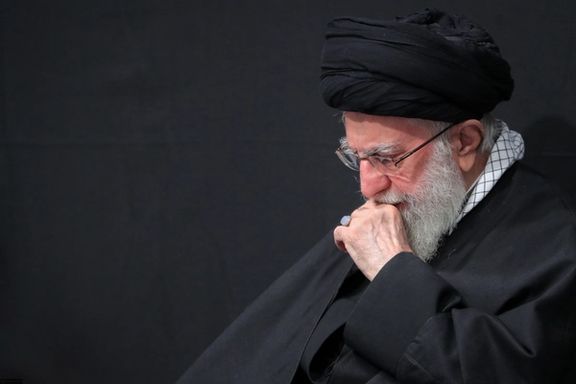Iran's Hardliners Fear A Republican Victory In US Elections

Ruling hardliners in Iran are growing increasingly apprehensive about the possibility of a Republican victory in US presidential elections, leading to a tougher stance towards Tehran.

Ruling hardliners in Iran are growing increasingly apprehensive about the possibility of a Republican victory in US presidential elections, leading to a tougher stance towards Tehran.
Among these hardliners, there's notable concern regarding the prospect of Donald Trump making a political comeback. Trump's withdrawal from the 2015 Joint Comprehensive Plan of Action (JCPOA) shattered the hopes of both Iranian hardliners and moderates, who had envisioned reaping benefits from the nuclear deal with the West in exchange for curbing their nuclear ambitions, while expanding their conventional capabilities and regional influence.
Since then, although the Biden Administration has been too kind to Tehran and often turned a blind eye in the face of mischiefs by Tehran, politicians in Tehran still believe that Biden could have done more than giving billions of dollars to Iran in return for releasing US hostages and releasing Iran's frozen assets in South Korea, Iraq and elsewhere.
Supreme Leader Ali Khamenei and his hardline loyalists have little reason to be alarmed by the prospect of President Joe Biden taking tougher action, as they succeeded in convincing his administration to release billions of dollars. They have been led to believe that they can influence the current administration by occasional sabre rattling or by threatening a nuclear escalation, which would be stopped by more concessions from the United States.

Earlier in this week, former Foreign Minister Ali Akbar Salehi implied that Iran has already surpassed the nuclear threshold.
However, the Iranian Parliament's research center warned the country's top officials including Khamenei about the bleak economic implications of Trump's victory in US elections.
Meanwhile, after a eulogist harshly criticized Iran's moderates and particularly former President Hasan Rouhani for spending too much time and resources to revive the 2015 JCPOA nuclear deal, reformist activist Reza Nasri reminded hardliners that if they had allowed the former government to revive the JCPOA during Biden’s presidency, most of its restrictions would have disappeared in due course.
Nasri further cautioned the ruling hardliners that within a year, Iran's nuclear dossier would be revisited at the UNSC, posing a challenging scenario should Donald Trump or Nikki Haley win the US presidential election. While Trump's foreign policy largely revolved around relations with Ukraine and Russia, Haley has consistently adopted a tough stance on Tehran and its leading clerical figures.
Highlighting the potential repercussions, Nasri warned that Iran's UNSC dossier could adversely impact three generations of Iranians.
Conversely, the Majles Research Center highlighted the concerning trend of Iran's diminishing foreign currency reserves over recent years, likening it to a form of economic disarmament. Warning of potential repercussions, the Center cautioned that a return of Trump to the White House could result in more sanctions, and this will be a shock to the financial markets in Iran. Furthermore, Trump has promised to make a deal with Russia and to focus on harnessing China. In this case, China is likely to reduce oil purchase from Iran and this will further shrink Iran's foreign currency reserve.
Furthermore, the Research Center pointed out another implication of Trump's potential return to the White House: challenges in Iran's economic partnership with Russia. Babak Negahdari, Chairman of the Majles Research Center, underscored the current decline in Iran's economy, evident from the situation of industries in the stock market, and emphasized the looming challenges ahead.
For instance, he highlighted a projected $3.7 billion deficit for importing essential commodities, which would require tapping into foreign currency reserves or the Central Bank. Negahdari warned of the likelihood of increased sanctions against Iran and the resultant shock to financial markets under a Trump presidency, suggesting that despite the Biden Administration's tenure, Iran's economic crisis may persist. He cited Iran's growing reliance on the UAE for marine logistics as a potential threat to food security and financial stability, indicating the pressing challenges facing Iran's economic landscape.